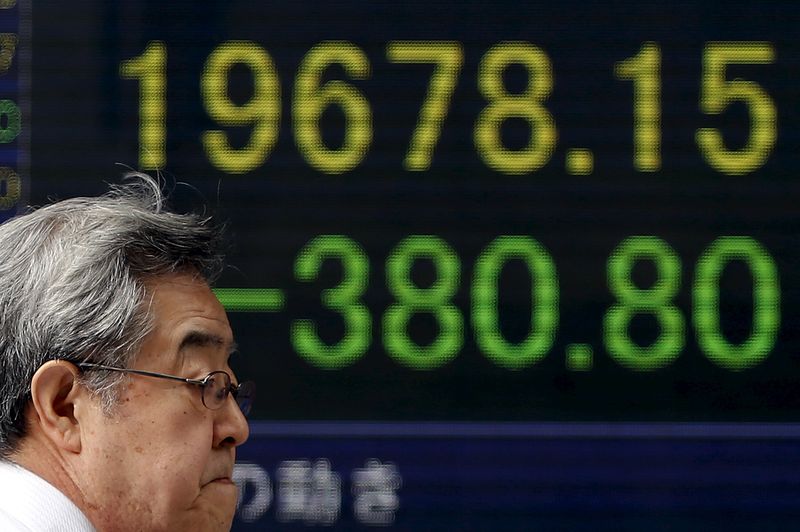By Gina Lee
Investing.com – Asia Pacific stocks were down on Friday morning, alongside bonds and U.S. shares. Investors continuing to reel from higher-than-expected U.S. inflation that hit a record four-month high.
South Korea’s KOSPI fell 0.61% by 9:22 PM ET (2:22 AM GMT) and in Australia, the ASX 200 fell 0.77%.
Hong Kong’s Hang Seng Index was down 0.47%.
China’s Shanghai Composite edged down 0.20% and the Shenzhen Component edge down 0.14%.
Japanese markets were closed for a holiday, and there will be no cash trading.
In the U.S., the tech-heavy Nasdaq 100 led declines as U.S. shares broke a two-day upward trend. Antipodean bonds also fell, with the Australian three-year yield hitting its highest level since 2019. In the U.S., the two-year Treasury yield Thursday saw its biggest one-day surge since 2009 on Thursday, while Treasury futures were steady.
The combination of sharp losses in U.S. Treasuries and a flattening yield curb indicated that investors expect the economic recovery to slow down and a more hawkish Federal Reserve.
The U.S. data showed that the consumer price index (CPI) grew 7.5% year-on-year, and 0.6% month-on-month, in January. The core CPI grew 0.6% month-on-month and 6% year-on-year. It also triggered hawkish comments from St. Louis Fed President James Bullard, who said the Fed should hike rates by 100 basis points over the next three meetings. Bullard also raised the possibility of considering moves outside the scheduled policy reviews.
The latest market volatility reflected investors’ difficulty in adjusting to the Fed’s potential monetary policy tightening to curb inflation. Overnight index swaps started pricing an approximately 80% chance of a 50-basis-point interest rate hike at the Fed’s March 2022 meeting, followed by 25 basis points priced for May and June.
“We don’t think the market has priced the full extent of what we feel the Fed has to do going forward,” GenTrust LLC principal at investment manager Elena Hernandez told Bloomberg.
“Bullard’s comments today were a big shock and surprise, especially talking about a potential inter-meeting movement. We expect rates to continue to sell off.”
Across the Atlantic, European Central Bank President Christine Lagarde warned that tightening monetary policy too quickly could harm the eurozone’s economic recovery.
Back in Asia Pacific, China will release its own CPI and producer price index in the following week. The Bank of Japan finally took action to curb bond yields, offering to buy an unlimited amount of bonds Monday at a fixed rate. Reserve Bank of Australia Governor Philip Lowe central bank chief said the central bank will be patient on policy until inflation is sustainably within its target range.
